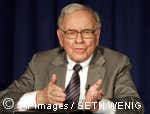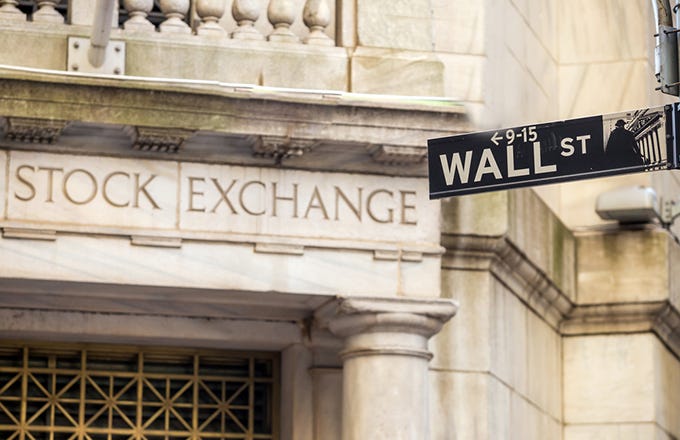Born: 1941 (Mount Kisco, New York)
Key Positions: Calvin Bullock
Loab Rhoades & Company
Steinhardt Partners
Personal History:
Michael Steinhardt got his start in the financial world early in life. While he was a teenager, he began to read stock charts while spending time around stock brokerage offices. He completed high school at age 16 and the Wharton School of Finance in just three years, graduating in 1960 at age 19. Steinhardt’s earliest positions were in research and analytics with the mutual fund Calvin Bullock and, later, the brokerage firm of Loab Rhoades & Company. In 1967, Steinhardt partnered with Howard Berkowitz and Jerrold Fine to create a hedge fund called Steinhardt, Fine, Berkowitz & Company. Steinhardt guided the firm in its aim to identify macro market moves in order to place its securities trading strategies appropriately.
In 1979, both Berkowitz and Fine left the partnership and the company was renamed to Steinhardt Partners. Steinhardt Partners maintained a performance track record that remains one of Wall Street’s best. It sported 24% compound average annual returns for a 28-year period of existence. Steinhardt himself was known for investing in a wide range of products, making him one of the most versatile investors of his generation.
Steinhardt closed his fund in 1995 after a final year with 21% returns. 1994, his penultimate year, was not as happy: he saw his fund lose 30% as a result of interest rate changes. In the intervening time, Steinhardt has become one of the most prominent philanthropists in the northeastern United States, making significant donations to New York University, Brandeis University, and the University of Pennsylvania.
Investment Philosophy:
Steinhardt maintained a long-term perspective but invested based on short-term strategies. He would use a wide range of securities ranging from stocks, bonds, long and short options, currencies, and more. He focused on macro asset allocation moves. Charles Kirk, publisher of The Kirk Report, gleaned these "rules of investing" from a Steinhardt speech back in June, 2004, which show that even a high-flying hedge fund investor needs to be grounded:
- Make all your mistakes early in life. The more tough lessons early on, the fewer errors you make later.
- Always make your living doing something you enjoy.
- Be intellectually competitive. The key to research is to assimilate as much data as possible in order to be to the first to sense a major change.
- Make good decisions even with incomplete information. You will never have all the information you need. What matters is what you do with the information you have.
- Always trust your intuition, which resembles a hidden supercomputer in the mind. It can help you do the right thing at the right time if you give it a chance.
- Don't make small investments. If you're going to put money at risk, make sure the reward is high enough to justify the time and effort you put into the investment decision.
Noteworthy Publications:
- "No Bull: My Life In And Out Of Markets" by Michael Steinhardt (2001)
Quotes:
"One dollar invested with me in 1967 would have been worth $481 on the day I closed the firm in 1995, versus $19 if it had been invested in a Standard & Poor's index fund."
"I always used fundamentals. But the fact is that often, the time frame of my investments was short-term."
"I do an enormous amount of trading, not necessarily just for profit, but also because it opens up other opportunities. I get a chance to smell a lot of things. Trading is a catalyst."
"Somehow, in a business [securities trading] so ephemeral, the notion of going home each day, for as many days as possible, having made a profit – that's what was so satisfying to me."
The Greatest Investors: John Templeton
-
 Personal Finance
Personal Finance3 Tips for Making Better Financial Decisions
To make better financial decisions you need to define success, find out how others do it, make a plan, and think outside the box. -
 Investing
InvestingThe Top 3 Benefits of Investing Early
Three very compelling reasons to start investing when you are young. -
 Taxes
TaxesYour Most Important Investment Is a Life of Service
Philanthropy can involve much more than making a direct donation. -
 Personal Finance
Personal FinancePreparing for a Personal Finance Crisis
These are the things that you can change to prepare for a financial crisis before it happens. -
 Investing
InvestingShowtime's "Billions" Explained
The genesis and the real-life inspirations for Showtime's breakout success "Billions." Even the actors really did their homework. -
 Investing
InvestingGetting started in stocks
Here, we provide a step-by-step introduction to how to invest in stocks and succeed in this market. -
 Investing
InvestingThe 6 Highest Paid People On Wall Street
Learn more about the top Wall Street investors who made their fortunes with high-stakes hedge funds. -
 Personal Finance
Personal Finance3 Ways Debt Holds You Back from Life Goals
If debt is holding you back from living the life you’ve always dreamed of avoid these mistakes. -
 Investing
InvestingDon't Ask This Investing Question First
Investors need to consider personal goals first before picking investments.



